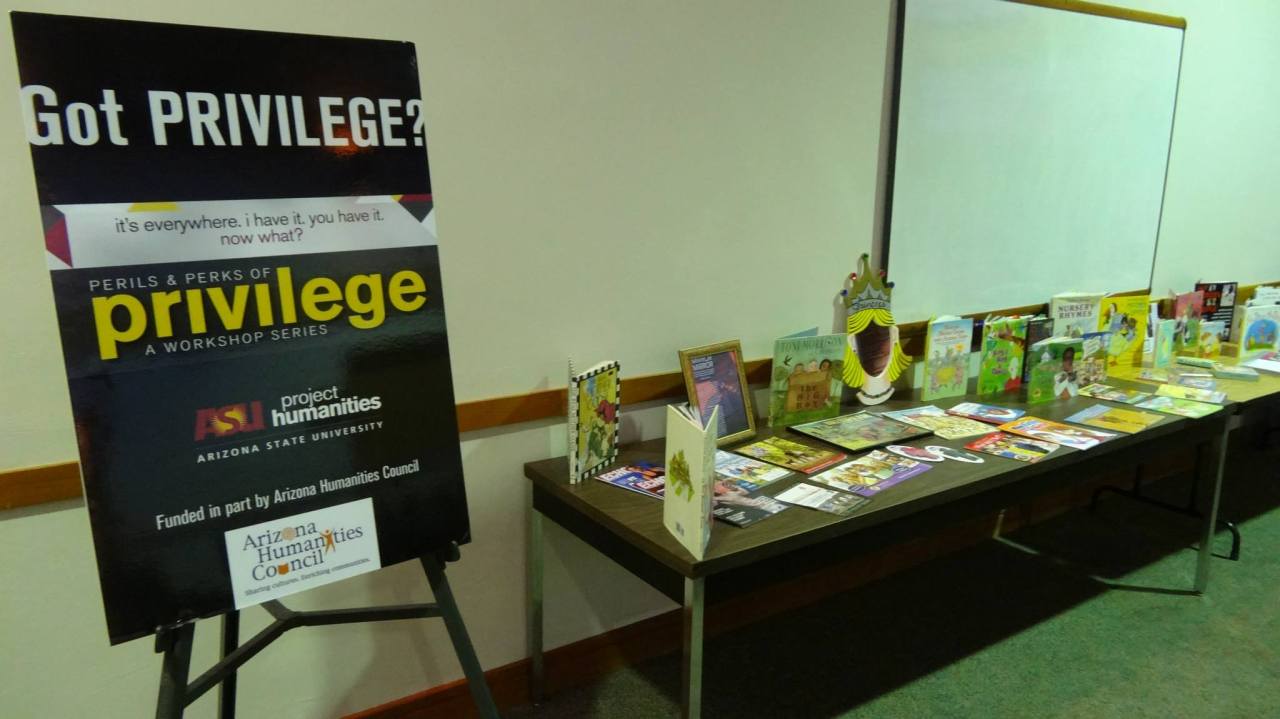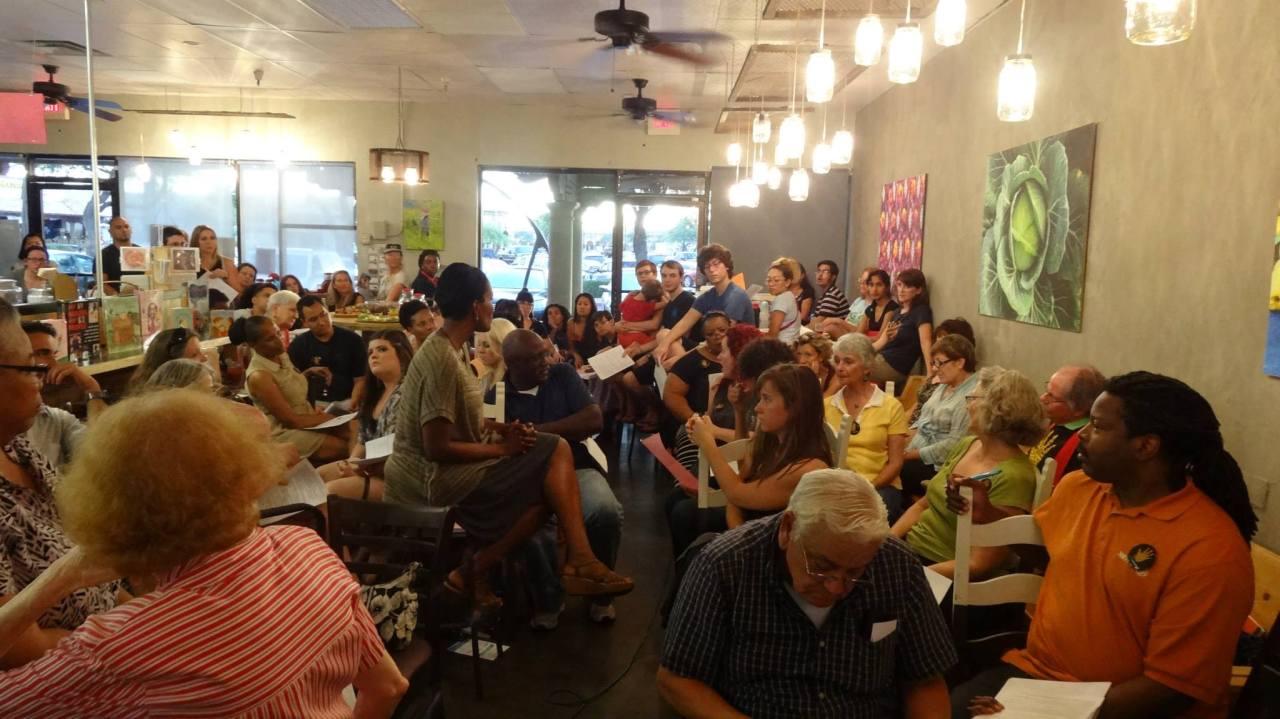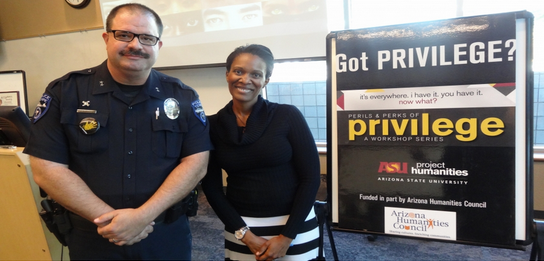Sunday, July 19, 2015
It's easy to admit that privilege exists, but admitting it exists in ourselves is a whole other beast, and it seems like the more privilege you have, the less you actually get the concept of privilege. Personal accountability is a bullet dodged far too often, and according to a study released this past week by the Journal of Experimental Social Psychology, the reason why comes with a common misconception of what privilege actually looks like.
Accourding to a report by the Pacific Standard, during the study a group of 94 and 91 participants respectively were administered two different surveys: one covering racial inequality in America and the other childhood experiences. One group answered the survey straight away, while the other read a paragraph providing evidence of white privilege in multiple aspects of society. Researchers found that those who read the paragraph first were more likely to deny white privilege in their survey, but also more likely to claim harship in the other one.
They further predict that "...such evidence will be threatening and that people will claim hardships to manage this threat. These claims of hardship allow individuals to deny that they personally benefit from privilege, while still accepting that group-level inequity exists."
In other words, many fail to realize that a life with privilege is not a life without hardship, and just because one is oppressed in a single way, does not mean they do not benefit from privilege in any aspect at all. Tom Jacobs, author of the Pacific Standard article mentioned above, argues that we like to believe that in this country everything we gain is based off of our own merits, and when this idea is threatened, we feel offended, we feel like we're being told that we don't earn what we have. And yet, being accountable for one's personal privilege has nothing to do with denying their merits, but rather, admitting advantages. It takes a great degree of maturity to admit there is a difference between the two, but make no bones about it, a difference does exist.
Do you see individuals deny their privilege frequently? Do you agree with this study's explanation for this behavior? Express your thoughts below!
Accourding to a report by the Pacific Standard, during the study a group of 94 and 91 participants respectively were administered two different surveys: one covering racial inequality in America and the other childhood experiences. One group answered the survey straight away, while the other read a paragraph providing evidence of white privilege in multiple aspects of society. Researchers found that those who read the paragraph first were more likely to deny white privilege in their survey, but also more likely to claim harship in the other one.
They further predict that "...such evidence will be threatening and that people will claim hardships to manage this threat. These claims of hardship allow individuals to deny that they personally benefit from privilege, while still accepting that group-level inequity exists."
In other words, many fail to realize that a life with privilege is not a life without hardship, and just because one is oppressed in a single way, does not mean they do not benefit from privilege in any aspect at all. Tom Jacobs, author of the Pacific Standard article mentioned above, argues that we like to believe that in this country everything we gain is based off of our own merits, and when this idea is threatened, we feel offended, we feel like we're being told that we don't earn what we have. And yet, being accountable for one's personal privilege has nothing to do with denying their merits, but rather, admitting advantages. It takes a great degree of maturity to admit there is a difference between the two, but make no bones about it, a difference does exist.
Do you see individuals deny their privilege frequently? Do you agree with this study's explanation for this behavior? Express your thoughts below!
Sunday, July 5, 2015
We all know about white privilege, class privilege, even able-bodied privilege, but have you ever heard of something called neuro-typical privilege?
Up until this week, I hadn't. But then I came across this comic shared by Everyday Feminism.
This comic takes readers into a day in the life of a schizophrenic, and provides a simple list of need-to-knows and advice on socializing with those who have the mental illness. Not only was it informative, but it opens my eyes to a whole new kind of privilege that I've never noticed.
As the author, Crass, points out, dealing with the everyday challenges of your brain fighting against you isn't the only uphill battle that the mentally ill face. Because of the stigma media has branded to these people, primarily schizophrenics, many with mental illness have to pretend that there's nothing wrong with them in order to be accepted by their peers. This also shed light on a post I saw by a man with Agenesis of the Corpus Callosumon the blog Humans of New York who said:
I feel as if, from the outside, these assumptions seem so inhumane to cast upon people, yet we do it all the time. I dont know how many times I've tip-toed around people with mental illness just out of fear of not knowing what to do with them. But the reality is, these are people we're talking about, and it's heartbreaking to think that so many are trying to hide an illness because "coming out" as mentally ill brings so much isolation. You don't see that coming from cancer patients, or people who have physical (rather than mental) ailments. The true illness is not within these minds, but within our society. We have to reach a collective point of maturity to where we can strive to understand, embrace, and respect the mentally ill just like any other oppressed sub group of people.
However, in order to do that we must take the first crucial step first step in changing by being informed.
For more information on neuro-tyical privilege, take a look at this checklist here.
As well as this first account story on the harmful effects of neuro-typical privilege by a woman struggling with Autism.
And in case you missed it before, here's the full link to Crass's comic.
Up until this week, I hadn't. But then I came across this comic shared by Everyday Feminism.
This comic takes readers into a day in the life of a schizophrenic, and provides a simple list of need-to-knows and advice on socializing with those who have the mental illness. Not only was it informative, but it opens my eyes to a whole new kind of privilege that I've never noticed.
As the author, Crass, points out, dealing with the everyday challenges of your brain fighting against you isn't the only uphill battle that the mentally ill face. Because of the stigma media has branded to these people, primarily schizophrenics, many with mental illness have to pretend that there's nothing wrong with them in order to be accepted by their peers. This also shed light on a post I saw by a man with Agenesis of the Corpus Callosumon the blog Humans of New York who said:
“...when people know there is something wrong with your brain, they think you’re retarded...I’ve been labeled all my life. I’ve always been told that I’m learning disabled and I can’t do this and I’m not good enough to do that. And it’s hard to hear that stuff all the time without viewing yourself as a permanent victim and learning to be helpless. ...
Posted by Humans of New York on Thursday, July 2, 2015
I feel as if, from the outside, these assumptions seem so inhumane to cast upon people, yet we do it all the time. I dont know how many times I've tip-toed around people with mental illness just out of fear of not knowing what to do with them. But the reality is, these are people we're talking about, and it's heartbreaking to think that so many are trying to hide an illness because "coming out" as mentally ill brings so much isolation. You don't see that coming from cancer patients, or people who have physical (rather than mental) ailments. The true illness is not within these minds, but within our society. We have to reach a collective point of maturity to where we can strive to understand, embrace, and respect the mentally ill just like any other oppressed sub group of people.
However, in order to do that we must take the first crucial step first step in changing by being informed.
For more information on neuro-tyical privilege, take a look at this checklist here.
As well as this first account story on the harmful effects of neuro-typical privilege by a woman struggling with Autism.
And in case you missed it before, here's the full link to Crass's comic.
Subscribe to:
Posts (Atom)
Search
Popular Posts
-
This weekend everyone on my Facebook feed seemed to be up in arms over Jaden Smith wearing a dress to coachella. I don't really und...
-
Earlier this week Disney released its design for their first Latina princess ever. Corks were blown off of campaign bottles, parades fill...
-
In his comic "On a Plate," Auckland-based artist Toby Morris demonstrates both the effects and the ca...
Powered by Blogger.



